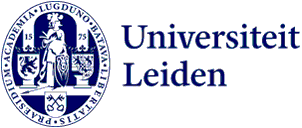258 search results for “drug” in the Student website
-
 Hildert Bronkhorst
Hildert BronkhorstFaculty of Science
-
 Eani Lachmansingh
Eani LachmansinghFaculty of Science
-
 Peter Bouwman
Peter BouwmanFaculty of Science
- Listen to the new Studenticast on Drug use
-
 Alexander Kros
Alexander KrosFaculty of Science
-
 Giulia Callegaro
Giulia CallegaroFaculty of Science
-
 Bob van de Water
Bob van de WaterFaculty of Science
-
 Gerard van Westen
Gerard van WestenFaculty of Science
-
 Laura Heitman
Laura HeitmanFaculty of Science
-
 Roxanne Kieltyka
Roxanne KieltykaFaculty of Science
-
 Eline Dekeyster
Eline DekeysterSocial & Behavioural Sciences
-
 Madeline Kavanagh
Madeline KavanaghFaculty of Science
-
national survey on mental well-being, alcohol and drug use
Social
-
 Mario van der Stelt
Mario van der SteltFaculty of Science
-
 Margo Dona
Margo DonaFaculty of Science
-
 Laura de Jong
Laura de JongFaculty of Science
-
 Anthe Janssen
Anthe JanssenFaculty of Science
-
 Sebastian Pomplun
Sebastian PomplunFaculty of Science
-
 Coen van Hasselt
Coen van HasseltFaculty of Science
-
 Erik Danen
Erik DanenFaculty of Science
-
 Daisy Batenburg
Daisy BatenburgFaculty of Science
-
 Chenlin Feng
Chenlin FengFaculty of Science
-
 Andraniek Evadgian
Andraniek EvadgianFaculty of Science
-
 Bart Kramer
Bart KramerFaculty of Science
-
 Bas ter Braak
Bas ter BraakFaculty of Science
-
 Marije Niemeijer
Marije NiemeijerFaculty of Science
-
 Thomas Hankemeier
Thomas HankemeierFaculty of Science
-
 Joost Batenburg
Joost BatenburgFaculty of Science
-
 Bola Khalil
Bola KhalilFaculty of Science
-
 Willem Jespers
Willem JespersFaculty of Science
-
 Brandon Bongers
Brandon BongersFaculty of Science
-
 Nasi Liu
Nasi LiuFaculty of Science
-
 Rosan Kuin
Rosan KuinFaculty of Science
-
 Dario Bijker
Dario BijkerFaculty of Science
-
 Marjolijn Lugthart
Marjolijn LugthartFaculty of Science
-
 Daan Jiskoot
Daan JiskootFaculty of Science
-
 Marc Boef
Marc BoefFaculty of Science
-
 Linde Schoenmaker
Linde SchoenmakerFaculty of Science
-
 Martijn Moné
Martijn MonéFaculty of Science
-
Agreements
Read here about the various agreements in place at Leiden University for student and study associations and other student organisations.
-
 Olivier Béquignon
Olivier BéquignonFaculty of Science
-
 Mick van Schaick
Mick van SchaickFaculty of Science
-
 Britt Duijndam
Britt DuijndamFaculty of Science
-
 Klara Beslmüller
Klara BeslmüllerFaculty of Science
-
 Ine Tijdens
Ine TijdensFaculty of Science
-
 Hanneke Leegwater
Hanneke LeegwaterFaculty of Science
-
 Marina Gorostiola González
Marina Gorostiola GonzálezFaculty of Science
-
 Xuesong Wang
Xuesong WangFaculty of Science
-
 Kirsten Veltman
Kirsten VeltmanFaculty of Science
-
 Jurjun van der Velde
Jurjun van der VeldeFaculty of Science
